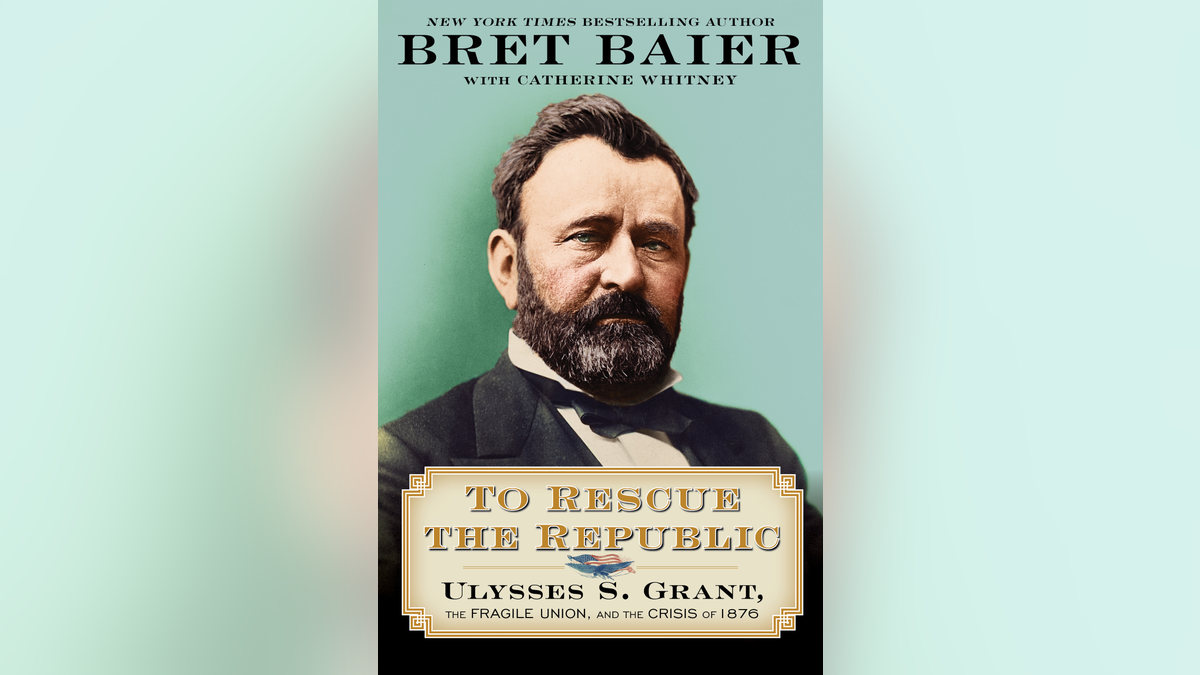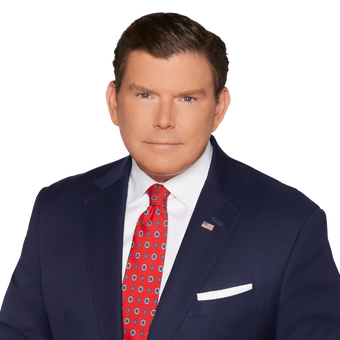Fox News Flash top headlines for September 13
Fox News Flash top headlines are here. Check out what's clicking on Foxnews.com.
If President Ulysses S. Grant were to step into office today, he would find a familiar scene: A divided nation scarred by violence, a recalcitrant Congress, a hostile media, and a sense that the very fundamentals of the Republic were on shaky ground. And perhaps he would be tempted to grab the presidential quill and achieve by executive order what he could not secure from Congress.
After all, in his day Grant had been the master of executive orders, issuing 217—a record. Early presidents made scant use of them—Jefferson, Madison and Monroe issued one each—and even Lincoln only reached 48. Yet in many ways Lincoln was Grant’s model for executive overreach.
Lincoln notoriously suspended the writ of habeas corpus, declared martial law, seized private property and set himself up with special war powers that were expressly forbidden by the Constitution. He justified this extra authority by the emergency of war and the singular objective of preserving the Union.
When Grant stepped into the presidency in 1869, he believed Lincoln’s justification still held weight. The nation was out of the war but not quite into the peace.
NEBRASKA GOV. RICKETTS RAILS AGAINST VACCINE MANDATE: BIDEN 'PRETTY IGNORANT OF WHAT'S GOING ON'
The South, though defeated, was unprepared for the new reality. The heartbroken citizenry, their homes and communities torn apart by war, their families destroyed, and their economy shattered, faced an uncertain future.
It was a dangerous transition, as Grant acknowledged in his inaugural address: "The country having just emerged from a great rebellion, many questions will come before it for settlement in the next four years which preceding Administrations have never had to deal with. In meeting these it is desirable that they should be approached calmly, without prejudice, hate, or sectional pride, remembering that the greatest good to the greatest number is the object to be attained."

Those words dispersed into the wind to little effect. In reality, the South was growing so inhospitable to Blacks that Grant embarked on an ill-fated plan to annex the Caribbean nation of Santo Domingo (today’s Dominican Republic) to make an alternative home for them. Congress doomed that plan as the situation in some parts of the South grew more dire. During Grant’s first years in office, the Ku Klux Klan, an organization composed of the most embittered remnants of the Confederacy was emboldened in its terror campaign against Blacks, burning their schools and churches and beating and lynching those who were unlucky enough to cross their paths.
A man comfortable with military solutions, Grant sought the power to send the military after the KKK. "A condition of affairs now exists in some of the states of the Union rendering life and property insecure, and the carrying of the mails, and the collection of the revenues dangerous," he told Congress, adding that the power to "correct these evils" was beyond the ability of the states.
In April 1871, Congress passed "An Act to Enforce the Provisions of the Fourteenth Amendment," known as the Ku Klux Klan Act. Grant instantly signed it into law.
This bill gave the federal government the power to intervene, and Grant sent troops to disperse the Klan.
Grant’s decision to send federal troops into the South struck a deep nerve with Southerners who decried it as an abuse of power and a destruction of states’ rights.
That didn’t stop Grant.
The problem was, once federal troops were used for one disruption, it was easy to keep using them. The KKK was not the only obstructionist force. Throughout the South white militia groups and rifle clubs were forming, threatening not only Blacks but the white Republican officials supporting them and the security of elections. For the remainder of Grant’s time in office, there would be one crisis after another requiring federal troops.
By the end, Grant was exhausted with the effort to keep violence at bay and to force the rule of law in the South. The nation was tired of Reconstruction and public sentiment was increasingly in favor of pulling the plug on federal troops.
During the disputed election of 1876, Grant quietly helped broker a deal: the acceptance of Republican Rutherford B. Hayes as president in exchange for the removal of federal troops from the South. Promises were made by the Democrats that the rights of Blacks would be protected after the troops departed. That, of course, was not to be.
More from Opinion
The rapid removal of troops—one of Hayes’s first acts in office—set the stage for nearly a century of Jim Crow. Although Grant never hesitated to claim executive power while in office, in the end it did not resolve the racial crisis, and perhaps only made it worse.
Presidents have grappled with the extent of executive power throughout our history, and many have found as Grant did that executive orders allow them to govern more cleanly, without the messy wrangling with Congress.
One of the most dramatic instances of this was FDR’s executive order on the internment of Japanese Americans after Pearl Harbor, an action that was unchallenged at the time but has since been declared one of the most shameful (and unconstitutional) orders to emanate from a White House.
As I was completing work on my book, "To Rescue the Republic: Ulysses S. Grant, the Fragile Union, and the Crisis of 1876," I witnessed and reported on the January 6 violence at the Capitol.
I was drawn to the clear parallels between Grant’s time and our own. As Joe Biden took office, I noted his reliance on executive orders in a climate where Congress was in no mood to be cooperative.
From his first moments as president, Biden began releasing a cascade of executive orders—54 by August 2021. Many of these were aimed at undoing Trump’s actions while in office, including rejoining the Paris climate agreement, revoking the permit for the Keystone XL pipeline, stopping construction on the border wall, repealing the transgender ban in the military, preserving DACA protections, and revoking various federal regulations and other orders.
Biden was also facing a crisis as the COVID pandemic and the delta variant continued the spread. With vaccine availability resolved, Biden soon found that the real challenge was not access to vaccinations but resistance.
The polarization over vaccinations and masks set up a potential constitutional showdown as Biden explored the extent of his power.
Early on, Biden ordered vaccines or weekly testing for military and federal employees and mask mandates for federal properties and transportation systems. The question was, how much further could he go?
Throughout the summer of 2021, as vaccination numbers languished and hospital emergency rooms and ICUs reached capacity in cities across the country, the matter of Biden’s executive authority grew more urgent. Did he have the power to declare a broad emergency that would allow him to take on the states’ authority to make their own rules about compliance?
On September 9, the president made an announcement that stepped right up to the line of a full vaccine mandate. He took an unexpected route, ordering the Occupational Safety and Health Administration (OSHA)—a Nixon-era workplace regulatory agency—to mandate that businesses with 100 or more employees require workers to be vaccinated or submit to weekly COVID tests. A stiff fine of $14,000 per violation would be imposed for noncompliance. Further, he announced that all federal employees and contractors must now be vaccinated, with no option for testing as an alternative. Healthcare workers treating Medicare or Medicaid patients at hospitals or other facilities must be vaccinated.
Necessity or overreach? There was an immediate outcry from many conservatives claiming that these mandates were unconstitutional. Private companies might be within their rights to establish vaccine mandates, but did the federal government have the right to force them? Inevitably the matter would be challenged in court. But Biden wasn’t waiting around to test his powers.
He had a direct message for unvaccinated Americans: "We’ve been patient, but our patience is wearing thin…Your refusal has cost all of us. So, please, do the right thing."
Thinking about what Grant would do in this situation, given his experience with the effects of strong federal action in the states, one might guess that he’d support a strong executive action, even if it was constitutionally murky.
CLICK HERE TO GET THE OPINION NEWSLETTER
Grant, too, had felt the sting of unabated resistance to the goals of Reconstruction, and perhaps calculated that the resisters were in the minority and could be outmaneuvered. It didn’t work out that way.
The resisters might have been in the minority, but they had the tacit support of many others in a nation that was (as now) almost evenly divided.
Grant was a reflective man, who was able to review his actions with a degree of honesty and humility unusual for chief executives.
"Mistakes have been made," he said when he left office, and he could have provided a long list. He never said he regretted his strong-arm use of federal power to contain violence in the South. But what Grant might tell Biden, from bitter experience, is that he should take care in the use of executive power.
Overreliance on presidential orders conveys a lack of confidence in the equal branches of government. Biden’s argument, that a relatively small minority is thwarting the will of the people, is one that has been made many times before in our history to little effect constitutionally.
CLICK HERE TO GET THE FOX NEWS APP
Ultimately, the nation cannot achieve by force or decree what the hearts of the citizenry reject. Executive action, while empowering in the moment disappears in the blink of an eye with the next election.
Better to do the hard work of governing for the future, even if success is beyond the chief executive’s horizon.
CLICK HERE FOR MORE FROM BRET BAIER
Bret Baier is the author of four presidential biographies. His latest, "Rescuing the Republic: Ulysses S. Grant, the Fragile Union, and the Crisis of 1876," will be released October 12, 2021.











































